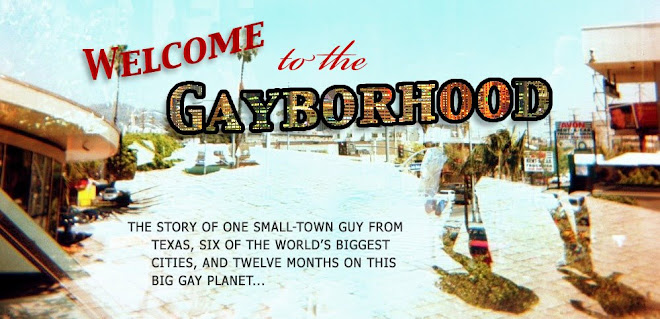A (Scandalously Brief) Primer...
Basically, what it boils down to is this - the idea that the world is split up into two distinct and alien races of heterosexuals and homosexuals is rather unfounded. Ever since the beginning of sex demography we’ve known that people’s sexual experiences are varied and dynamic, and that physical intimacy factors into people’s lives in complex ways. The very words ‘homosexual’ and ‘heterosexual’ as well as their associated concepts are less than 140 years old, making them relatively new way of thinking about a subject that’s as old as humanity.
While discussion of a homo/hetero binary has steadily lost currency in academic circles it appears to be on the rise, in many ways, in popular culture and people’s everyday life as a (seemingly useful) social category. The way we view and interpret people across space and time becomes colored along these lines, and people start to talk about the ‘gays’ of Ancient Greece, and the ‘global gay community’ as if perhaps anywhere that you don’t see gays holding picket signs or rollerblading in short shorts and eye-shadow they must simply be repressed.
At the other extreme is the tendency, born from the noble days of early postmodern anthropology, to say that everyone’s sexual experience is inherently unique and dependent upon their specific regional context. At worst, this can lead to outright exoticism, and at best to a vested, nostalgic or inaccurate portrayal.
The truth encompasses parts of each of these images - we live now in a global, predominantly urban planet, where people have to be able to juggle a number of different identities and realities, and where they may not ascribe completely to any of them.
The angle I’m taking on all of this is a ‘social-constructionist’ account of a queer ‘ethnogeography’. Useful terms, no?
Implicit in this is the idea that some kind of idealized gay identity doesn’t truly exist for anyone in practice but that they take on elements of it at various points in their life and ascribe to the name when it’s convenient for them to do so (what theorists refer to as ‘strategic essentialism’). However, while I may see my role as a ‘gay’ person now as a socially-structured artifice that I can employ as needed to legitimize non-conforming activities and performances (rather than as some deterministic script for my behavior), I’m still left in the position of having to find a date...
Regardless of how much we may choose to ascribe to, contain, or dismiss identity politics, there remains a very practical need to access and participate in social ‘markets’ of people who are seeking the same things. Every person with same-sex desires or histories, from gay rights activists to ‘discrete’ MSM must learn to reconcile their sense of self with this ‘third party’. It is therefore much easier and more efficient to study these places than all of the myriad people whose lives intersect with them. These places, physical, digital, and imagined, come to represent the notion of a quintessential gay lifestyle with which we may choose to adopt some likeness. These locations are both global (embedded in a Western notion of the ‘gay bar’) as well as local (utilized as tools and intersection points for a number of different ends by different people), though they are by no means the exclusive domains of an area’s same-sex eroticism.
It is through documenting life in the domain of same-sex activity that I hope to shed light on how these identities are coming to be defined on the local scale, something that - as discourse on such topics becomes increasingly acceptable around the world - can influence the way an entire region comes to think about sex and sexuality.
Subscribe to:
Post Comments (Atom)


1 comment:
very good. i just wrote a phat comment, but now i'm frustrated because this thing deleted it. I love you, miss you, best of luck my friend, and I will write more later.
Post a Comment